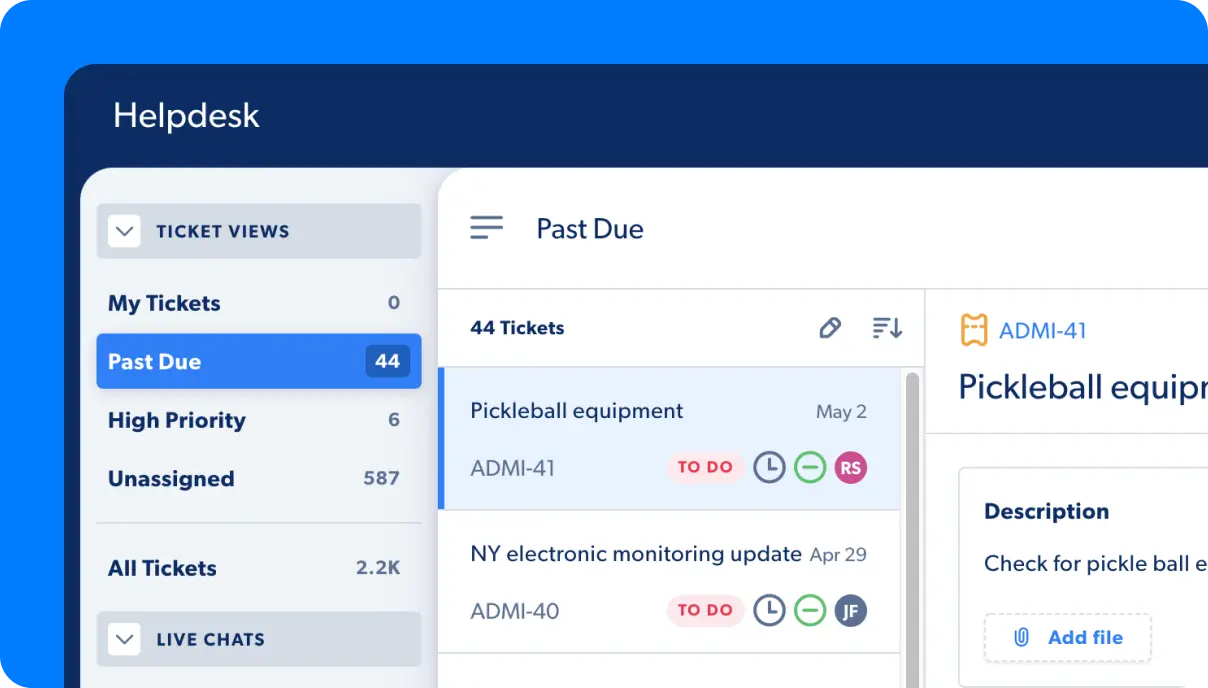As technology continues to evolve at a rapid pace, the landscape of customer service is undergoing a significant transformation. The emergence of AI in Contact Centers has spurred innovative solutions designed to enhance efficiency, productivity, and customer satisfaction. This guide delves into three key areas: what AI in Contact Centers should look like today, the concept of the Virtual Contact Center, and the rise of the virtual agent—each offering a unique approach to revolutionizing customer service operations.
What AI in Contact Centers Should Look Like Today
AI technology has become integral to modern contact centers, shaping how businesses interact with customers, streamline operations, and enhance service quality. Here’s a comprehensive look at what AI in contact centers should look like today.
AI-Powered Chatbots and Virtual Assistants
AI-powered chatbots and virtual assistants are a cornerstone of AI Contact Centers. These intelligent tools use Natural Language Processing (NLP) and machine learning algorithms to understand and respond to customer inquiries in a human-like manner. This capability allows them to handle a wide range of routine tasks, such as answering frequently asked questions, providing order status updates, and processing transactions.
AI chatbots significantly reduce wait times by providing instant responses, enhancing customer satisfaction. Their ability to manage multiple inquiries simultaneously ensures that no customer is left waiting in a queue, offering consistent and efficient service around the clock.

The Guide to Support Automation
Discover:
- The different types of AI
- A framework for applying support automation
- Tips for choosing solutions
Real-Time Interaction Analysis and Support
One of the standout features of AI in Contact Centers is its ability to analyze interactions in real-time. AI tools can monitor live conversations, providing agents with immediate insights and suggestions. For example, if an agent is struggling to answer a customer’s question, AI can offer relevant knowledge base articles or next-best-action prompts, helping the agent resolve the issue more efficiently.
Real-time sentiment analysis is another vital component. AI can gauge the emotional tone of customer interactions based on voice or text cues. This insight allows agents to adjust their approach dynamically, providing more empathetic and appropriate responses, ultimately improving the overall customer experience.
Intelligent Call Routing
AI enhances traditional call routing through intelligent algorithms that direct inquiries to the most suitable agent based on various factors such as agent expertise, current workload, and customer history. This targeted routing increases the likelihood of resolving an issue in the first contact, which is crucial for improving First Call Resolution (FCR) rates and reducing Average Handle Time (AHT).
Intelligent call routing ensures that customers are consistently connected to agents best equipped to handle their specific needs, enhancing both customer satisfaction and operational efficiency.
Predictive Analytics
Predictive analytics powered by AI can forecast customer behavior, call volumes, and potential issues based on historical data and patterns. This capability allows contact centers to anticipate and prepare for busy periods, ensuring adequate staffing levels and resource allocation.
Proactively addressing potential issues before they escalate helps in maintaining high service levels and customer satisfaction. Predictive analytics also enables contact centers to offer proactive support, reaching out to customers who may need assistance based on their interaction history and behavioral patterns.
Automated Reporting and Analytics
AI streamlines the process of generating and interpreting performance reports. Automated reporting tools provide comprehensive insights through easy-to-understand dashboards, allowing managers to track key performance metrics such as Customer Satisfaction Score (CSAT), Net Promoter Score (NPS), and agent productivity in real-time.
By freeing up managerial time from manual reporting tasks, AI empowers leaders to focus on strategic initiatives that drive continuous improvement and enhanced service quality.
What is a Virtual Contact Center?
The concept of the Virtual Contact Center has gained traction as businesses seek to leverage technology for greater flexibility and efficiency. A virtual Contact Center operates without a central physical location, allowing agents to work from anywhere. This setup is enabled by cloud-based solutions that facilitate seamless communication and collaboration.
Flexibility and Scalability
One of the primary advantages of a virtual Contact Center is its flexibility. Agents can work remotely, providing support from any location with an internet connection. This flexibility attracts a broader talent pool, enabling businesses to hire skilled agents regardless of geographic constraints.
Scalability is another significant benefit. Virtual Contact Centers can quickly scale up or down to meet fluctuating customer demands. During peak periods, additional agents can be easily onboarded to handle increased workload, ensuring consistent service quality without the need for extensive physical infrastructure.
Cost Savings
Operating a virtual Contact Center offers substantial cost savings by reducing the need for physical office space and associated overhead expenses such as rent, utilities, and maintenance. These savings can be redirected towards investing in advanced technologies and agent training programs, further enhancing service quality and operational efficiency.
Enhanced Agent Satisfaction
Remote work arrangements contribute to higher agent satisfaction and retention rates. The flexibility of working from home or other preferred locations offers agents better work-life balance, reducing burnout and enhancing overall job satisfaction. Happier agents are more likely to deliver exceptional customer service, positively impacting customer satisfaction and loyalty.
Omnichannel Support
Virtual Contact Centers excel in delivering omnichannel support, integrating various communication channels such as phone, email, live chat, social media, and messaging apps into a unified platform. This integration ensures that customers receive consistent and cohesive service across all touchpoints.
Unified customer interaction management is integral to omnichannel support. It enables agents to access and track all customer interactions from a single interface, providing a comprehensive view of each customer’s history. This holistic view eliminates the need for customers to repeat themselves and allows agents to offer more personalized and context-aware responses.
Robust Security Measures
Operating a virtual Contact Center necessitates robust security measures to protect sensitive customer data. Cloud-based platforms used in virtual contact centers employ advanced encryption, multi-factor authentication, and regular security audits to ensure data integrity and compliance with industry regulations.
These security measures safeguard customer information and maintain trust, which is critical for building and sustaining strong customer relationships.
The Rise of the Virtual Agent: Freeing Human Agents to Do Their Best Work
The integration of AI-powered virtual agents into Contact Centers marks a significant shift in how businesses approach customer service. Virtual agents handle routine inquiries, allowing human agents to focus on more complex and meaningful interactions.
The Role of AI-Powered Virtual Agents
AI-powered virtual agents, often in the form of chatbots or voice assistants, are designed to manage lower-level tasks such as answering frequently asked questions, providing order status updates, and conducting basic troubleshooting. By automating these routine tasks, virtual agents ensure that customers receive instant and consistent responses, enhancing efficiency and satisfaction.
Benefits of Virtual Agents
One of the key benefits of virtual agents is their ability to operate 24/7, providing continuous support to customers regardless of time zones or business hours. This round-the-clock availability ensures that customer inquiries are addressed promptly, improving overall service levels.
Virtual agents also contribute to significant cost savings by reducing the reliance on human agents for routine tasks. This reduction in workload allows businesses to allocate resources more effectively, focusing human agents on high-value interactions that require empathy, critical thinking, and specialized knowledge.
Enhancing Human Agent Productivity
The deployment of AI-powered virtual agents frees human agents to focus on more complex and personalized customer interactions. This shift in focus enhances agent productivity and allows them to leverage their skills in areas where they can make the most impact.
Real-time assistance provided by AI tools further supports human agents. During live interactions, AI can offer relevant suggestions, knowledge base articles, or next-best-action prompts, helping agents resolve customer issues more efficiently. This support improves key performance metrics such as FCR and AHT.
Improved Customer Experience
The rise of virtual agents leads to a better overall customer experience. By handling routine inquiries efficiently, virtual agents reduce customer wait times and ensure that more complex issues are promptly escalated to human agents. This efficient handling of inquiries enhances customer satisfaction and loyalty.
Virtual agents also contribute to a more personalized customer experience. Leveraging data analytics, they can tailor interactions based on customer history and preferences, offering a more customized and relevant service. This personalization builds stronger customer relationships and fosters greater loyalty.
Future Prospects
The integration of AI-powered virtual agents in Contact Centers is poised to expand further as AI technology continues to advance. Future developments may include more sophisticated virtual agents capable of handling increasingly complex tasks, further freeing human agents to focus on strategic and high-value work.
As businesses continue to embrace virtual agents, they will need to invest in continuous training and development for human agents to ensure they can effectively leverage AI tools and maintain high service standards. This investment will be crucial for sustaining the benefits of AI integration and delivering exceptional customer service.
Conclusion
AI Contact Centers represent the future of customer service, combining the power of AI technology with the flexibility and scalability of virtual operations. By embracing AI-powered solutions, businesses can enhance efficiency, productivity, and customer satisfaction while reducing operational costs.
The rise of the Virtual Contact Center and AI-powered virtual agents marks a transformative shift in how Contact Centers operate. These innovations allow human agents to focus on more meaningful work, delivering personalized and high-quality service that meets the evolving expectations of today’s customers.
As AI technology continues to evolve, the potential for AI Contact Centers to transform customer service operations will only expand. Businesses that invest in these innovations will be well-positioned to stay ahead of the competition and drive long-term success.
Embrace the future of customer service with AI Contact Centers and witness the transformative impact on your operations, agents, and customers. The benefits of enhanced efficiency, personalized interactions, and continuous improvement will pave the way for greater customer satisfaction and business growth.















































